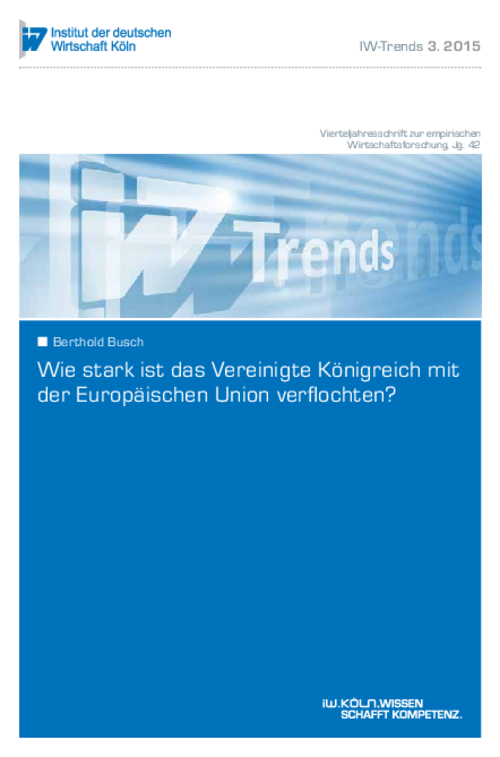The European single market is of prime importance for the British economy. However, since the turn of the millennium, the relative position of the EU for British exports of goods and services has declined. The United Kingdom has a trade deficit with the EU in goods, but a trade surplus in services. While the significance of the United Kingdom for direct investments from the EU member states has increased, Britain itself has invested more and more in non European markets. In cross-border trade in intermediate inputs the UK is relatively closely integrated with the continent not only in finance and business services but also in some manufacturing sectors, such as chemicals and energy. After a so-called Brexit new obstacles to cross-border trade in goods and services could affect these sectors particularly severely.

How Closely is the UK Economy Integrated with the European Union?
IW-Trends


Berthold Busch: Wie stark ist das Vereinigte Königreich mit der Europäischen Union verflochten?
IW-Trends

More on the topic
![[Translate to English:] Das Gebäude des Weißen Hauses in Washington, D.C. in den Vereinigten Staaten von Amerika. [Translate to English:] Das Gebäude des Weißen Hauses in Washington, D.C. in den Vereinigten Staaten von Amerika.](/fileadmin/_processed_/c/1/csm_GettyImages-2161499385_White_House_Editorial_884306add8.jpg)
Trump or Harris or ...? What Europe must prepare for
A few months before the presidential election in the USA, Donald Trump has a good chance of being re-elected. On the Democratic side, the incumbent president has withdrawn his candidacy after a long period of hesitation, while Vice President Kamala Harris is ...
IW
Compendium 5.5: CO2 Regulation of Road Transport in Europe
With the Compendium CO2 Regulation in Europe, the IW has been providing the interested public with a comprehensive collection of data on the development of CO2 emissions from passenger car traffic in the European Union, as well as on the applicable regulatory ...
IW